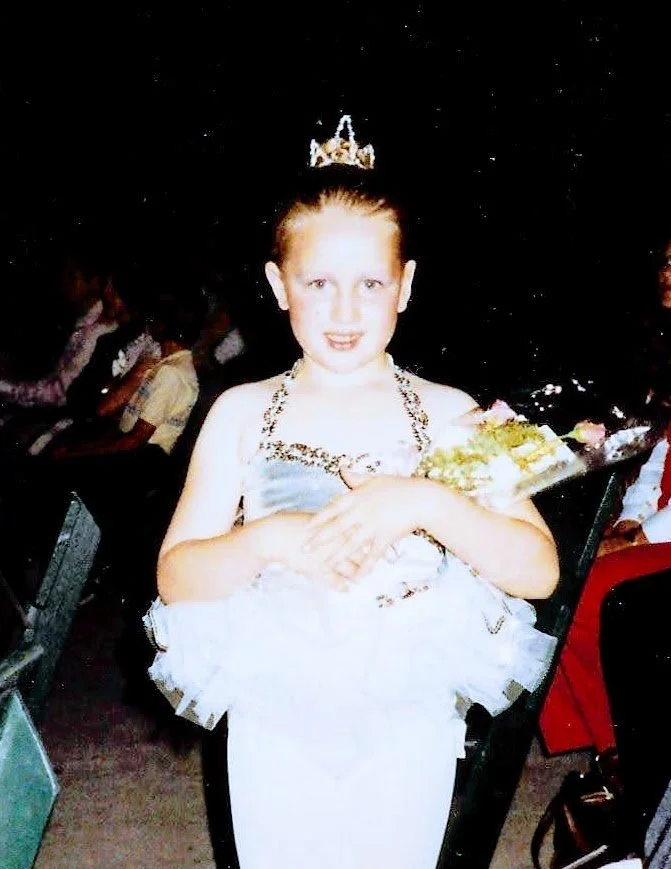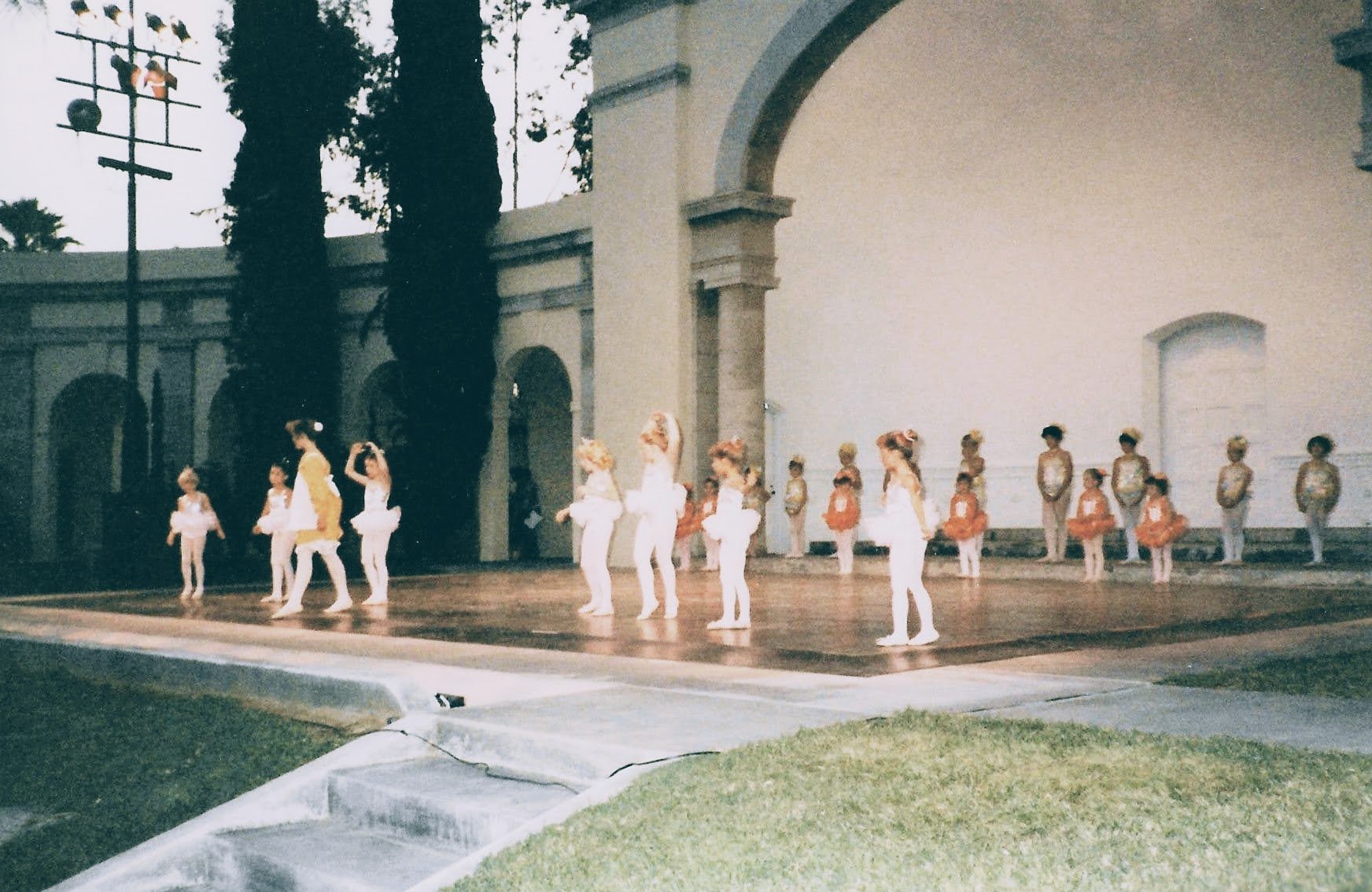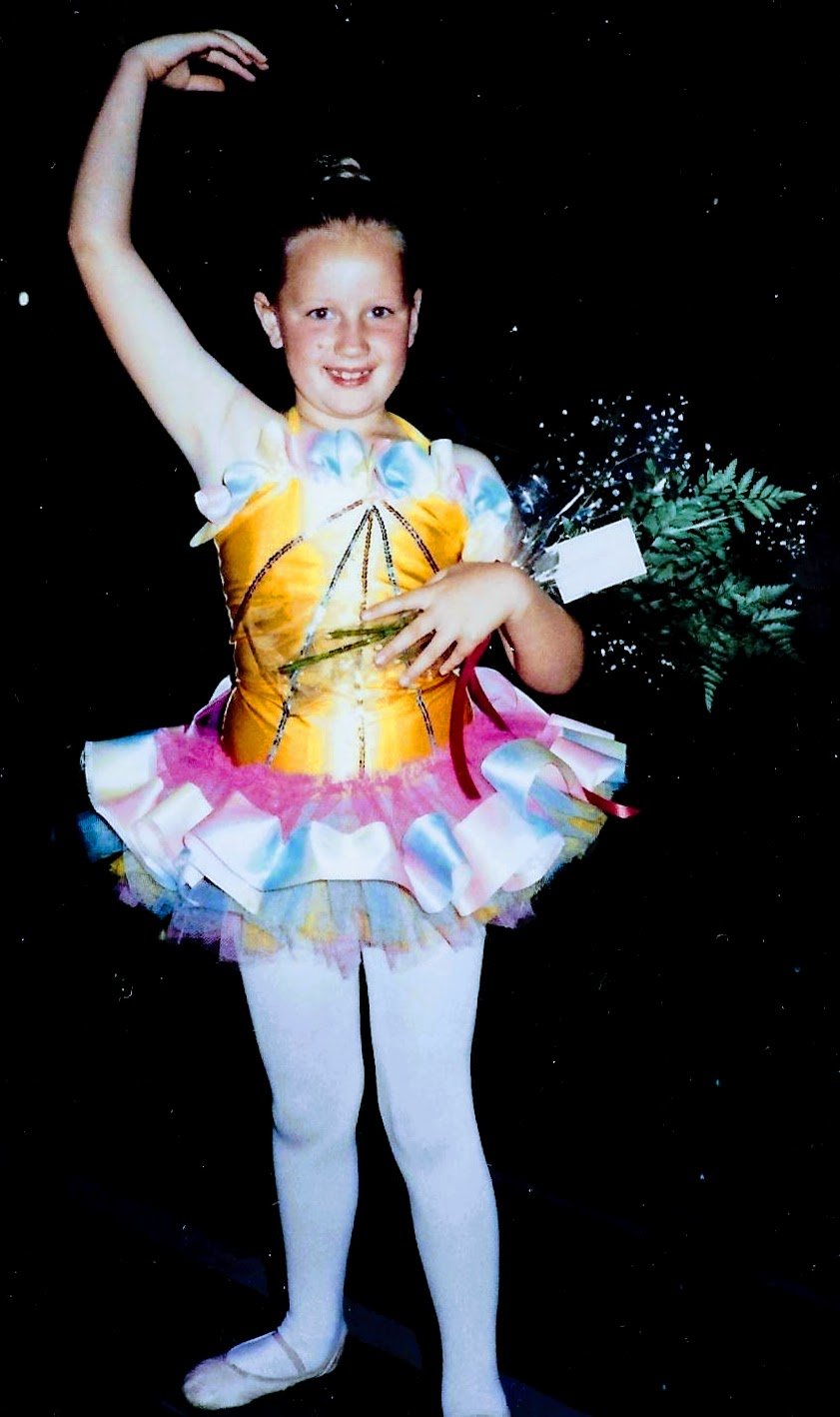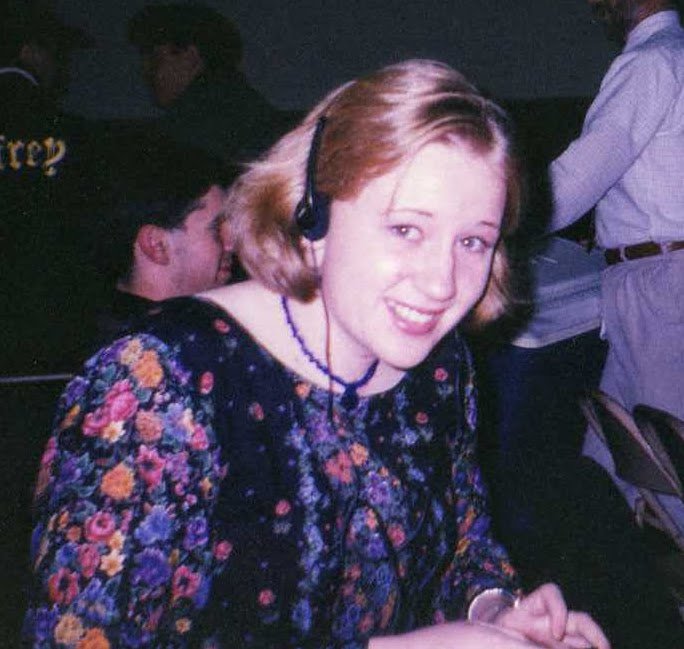TBT: Performance and Perfectionism
Throwback Thursday: A wise witch looks back
As a Cancer rising, I tend to be the keeper of family memories. In this series, I take a photo from my past and reflect on how time and experience has shaped my current perspective and practice as an art witch.
Getting ready to perform at the Orange Show circa 1983.
I was always a dreamy child. I think I learned to hide my rich imagination after one too many people looked at me with bewilderment and incomprehension. Artistic expression was always an area of interest and, for a child in the rural town I grew up in, dance was one option for young performers to engage in the arts.My first experience on stage was in my earliest dance recitals. At ages 6 and 7 I took ballet and some tap classes and performed at the Orange County Fair and the Redlands Bowl. I remember looking out at the lights and audience and trying to remember the choreography.
Being in front of an audience never really made me that nervous. I enjoyed being the center of attention, though even as a child I wanted to be the best at whatever I did and be better than everyone else, gaining the highest accolades and the most gold stars. This burning ambition and desire for external validation is something I have battled throughout life in order to become a more functional practicing artist.
I’m not sure why I stopped dance lessons at such an early age. It was probably a combination of cost to my parents and my own realization that I could no longer compete with the little and graceful bodies of my peers. Even by 8 or 9, I was taller and larger than most everyone else my age. I felt relatively clumsy in comparison, and my desire to be the best would likely have made me lose interest in dance simply for the fun of it.
Besides, a stronger kind of strength was emerging as I worked my way through school - my verbal acuity. As early as second grade I was being praised heavily for my writing and language skills, and this gave me the external validation and feeling of being number one that I naturally craved. My academic success is a tale for another time, but needless to say it was a kind of performance that I engaged in for the entirety of my elementary and high school career. The fact that I refer to school as my “career” gives you some idea of how seriously I took succeeding in the classroom. Fortunately for me, it always came easy and, up until my senior year, at relatively little cost to my mental health.
In high school the opportunity for extracurricular activities opened up a new world of performance options. I immediately knew I wanted to try acting and signed up for drama at the first opportunity. More surprisingly to me at the time, I also decided to join the speech and debate team (also known as forensics, but not the CSI kind). Those two avenues became my primary outlets for creative expression in my teen years.
In theater, I played several sizable roles including Miranda in the Tempest, Maria in Twelfth Night and Charlie's wife in our performance of Shirley Gee’s Never in my Lifetime. I also did some behind the scenes work as stage manager and production manager. I loved acting and felt that I was naturally good at it. I would have continued into college had I been able to sing. I can certainly dance decently but I am not a gifted singer.
Speech and Debate was the ultimate outlet for me in high school and I would say my safe place and haven in the difficult social tableau of the teenage years. I dabbled in many events before setting on interpretive competition in Dramatic and Thematic Interpretation. My desire to win gave me the drive to put in the work necessary to master these performance-based events. Like a sports team traveling to meets, our Speech team traveled around California competing in the various leagues and divisions. I did make it to state one year, but never made it to the national level of competition. I was a gifted speaker but not a great debater, and the debate masters and theater ingenues really dominated the higher levels of competition.
I was primarily an academic, and I had a third love of literature and literary analysis that kept me performing in a third venue at the top of my game. Speech and Theater, as much as I loved them, were still extracurricular to my goal of earning straight As,(or A+s, let’s be honest, were my expectation) across the board if I could do it without too much exclusive effort.
I went on to be highly successful in college and at pretty much every career I’ve engaged in, until burnout hit me like a freight train and I was forced to make a dramatic lifestyle change and prioritize what made me happy outside of the quest for more and more certificates and gold stars. That, again, is a story for another time.
Much of my adult, post-academic life has been battling the dual challenge of perfectionism and external validation. It is a struggle to place my energy where I want it to go, rather than where it can most easily please others. There are many types of activities that I could easily perform to be of service to others and to society, but the cost to my own authentic self is too great to sustain the work.
Perfectionism has no place in the practice of creativity, and art (at least outside of the formal “Art World”) is not a competition. In order to be satisfied with my creative routine I have had to detach my work from criticism and from competition. I must instead follow the muse that comes from within, instead of master choreography or a Shakespearean script.
It is a constant challenge and a constant practice to disengage from the desire to climb every ladder and dominate every venue, but it is rewarding to learn to channel that creative fire into something that both satisfies my soul and brings great beauty into the world.





